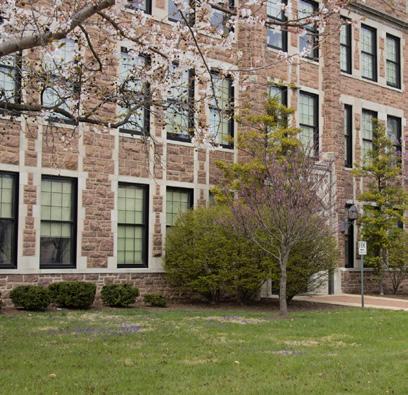
FONTBONNE PERSPECTIVES
University community speaks about their school’s closure.
(Scene, pg 3)

DANCE BATTLE
WUSauce hosts annual dance off, showcasing talent and teamwork from Bomba to Bhangra.
(Scene, pg 3)

SEE THE FLAGS, SAY THEIR STORIES
April 1 to commemorate the start of Sexual Assault Awareness Month.
(Forum, pg 4)




was awful but worth it,” Wileman said. “Absolutely the coolest experience of my life!” Senior Eeshani Behara also traveled to see it in totality, saying that it was really special to view it with her friends.
Sophomore Sonal Churiwal will remain the Speaker of Student Union (SU) Senate after receiving 53.12% of the vote to keep her seat in a specially held recall election with high voter turnout from students, April 10.
On March 26, a petition was released calling for Churiwal to be recalled from her seat, which she is slated to serve until the Fall 2024 Semester. The petition
uploaded anonymously to Washington University’s Group Organizer (WUGO) website alleged that Churiwal abused her power, violated neutrality rules, and created a “culture of fear.”
On April 3, senior Constantin Carrigan, SU Election Commissioner, emailed students and stated that the petition had received the necessary signatures — 5% of the student body — to be put to a vote in a special election. Carrigan said that the voter turnout was higher than general SU elections by roughly 0.2% with a total of 2,210 students,
and noted that voting was only open for 24 hours for the recall election, as opposed to the 48-hour time window for general elections. In the Spring 2024 election, the highest individual race saw 1,872 votes. “This is the first time this has been done in my tenure here — not even in office, just during my time at WashU,” Carrigan said. “We were really kind of going off on nothing. We decided on no rules. The Election Commission wasn’t really that involved in it, outside of physically running the election.” In his email to the student
Others stayed on campus, like first-year Abby Lopez, who said that the event was pretty fun.
Some students who stayed on campus indicated frustration with a lack of eclipse glasses and described WashU’s viewing event as “disorganized.”
“People kept on trying to steal my glasses because WashU ran out of free ones,” junior Josie Kopff said.
Many WashU faculty, staff, and administrators also joined students in enjoying the eclipse.
Assistant Dean of McKelvey, Kim Cummings, who said she
“It was surreal,” she said. “We ended up in a field by a random motel, but we set up our picnic just in time for totality. Seeing and feeling the drastic change during totality was such a unique experience.”
body that officially opened voting, Carrigan wrote that while there were no specific rules for the election, students were still bound by the University’s code of conduct. “I strongly encourage everyone to operate with the utmost respect for all parties involved,” he wrote. Two student-written opinion submissions were published in Student Life before the election began, with the first being written by Churiwal. The second was a joint statement from sixteen student organizations on campus and called the recall
witnessed totality in 2017, said the two experiences were both accompanied by an “eerie alert feeling.”
She also reflected on how these types of events impact student connection, noting “the sense of community that grows from witnessing these types of events together.”
Many students, like Behara, added that they appreciated the communal aspect of the event.
“It was such a unique experience, and sharing it with my close friends is one that I’ll never forget,” Behara said.
“politically motivated” and said that it “perpetuates racist stereotypes.” Churiwal told Student Life that she did not make decisions about her advocacy based on electoral results. “If I was concerned about electoral results, I never would have written [the] Boeing resolution, because it was at the same time as the Student Union race,” Churiwal said.
“While I’m glad that I’ll have the opportunity to continue to do work through Senate, I wouldn’t regret it if I was recalled for proPalestine actions.”
CONTACT BY POST ONE BROOKINGS DRIVE #1039 #320 DANFORTH UNIVERSITY CENTER ST. LOUIS, MO 63130-4899 CONTACT BY EMAIL EDITOR@STUDLIFE.COM NEWS@STUDLIFE.COM CALENDAR@STUDLIFE.COM CONTACT BY PHONE NEWSROOM 314.935.5995 ADVERTISING 314.935.4240 FAX 314.935.5938 The independent newspaper of Washington University in St. Louis since 1878 WWW.STUDLIFE.COM VOLUME 145, NO. 23 THURSDAY, APRIL 11, 2024 “It was surreal” WashU students, staff, and faculty view eclipse Speaker of Senate to remain in role after special recall election Washington University students, faculty, and staff gathered on campus and in locations across Southern Illinois and Southeastern Missouri to view the Great American Eclipse on April 8. The total eclipse was the first visible from the St. Louis area since 2017, and the next will not occur over the U.S. for another 20 years. Students responded to a Google Form sent out by Student Life to recount their experiences. Many students traveled to see the solar eclipse in totality, like senior Renee Fuller, who witnessed it from Mt. Vernon, Illinois. “I went with friends to this cultural arts center that had a whole eclipse day with music, food, and games,” Fuller said. “Lots of people were out there with picnic blankets and chairs, and it was very cool to be part of.” Fifth-year master’s student Aidan Stern, who traveled south, said he “got caught in traffic.” Several reports indicated “a giant traffic jam” on southbound Interstate 55. Sophomore Abi Wileman, who went to Burfordville, Missouri, said that traffic did not stop them from feeling satisfied with the experience. “Traffic
ALIANA MEDIRATTA TANVI GORRE MANAGING NEWS
NEWS
EDITOR
EDITOR SAM POWERS | STUDENT LIFE
ISAAC
CONTRIBUTING
Students, staff, and faculty both stayed on campus and traveled to Southern Illinois and Southeastern Missouri to view the total solar eclipse, April 8.
SEILER
WRITER
Senators and treasurers specifically took note of section 3 subsection 2.B, a new addition to the code of conduct that made offcampus “disruptive conduct”
a violation. This subsection applies to off-campus parties, which treasurer and junior Saish Satyal said could dissuade students from organizing mixers and gatherings for their clubs.
“[Students] are making that decision as a member of a community and as a legal adult who may face legal implications,” Satyal said.
“But I think the addition of a University sanction on top of that is an entirely new realm.”
Treasurer and first-year Varun Vadhera questioned whether the University should use its power to enforce the rule.
“Why do you think this is not an overreach of the university?” Vadhera said to Gore. “Because to me, it seems that it sort of is.”
Dean of Student Affairs, Rob Wild, responded to SU’s comments about the “disruptive conduct” section of the code stating that it only applies to private residences and not Washington University-owned properties.
“It’s [focused on] disturbing
the peace that happens offcampus in a private residence, so we’re not talking about the Lofts, or Greenway, or something that’s run by the university,” Wild said. Harry Campbell, a senior studying political science, was concerned that noise complaints are described as “disruptive conduct” in the new iteration of the code.
“I’m not sure that ‘disruptive conduct’ is necessarily as clear of language [as] should be used,” Campbell said. “When I read disruptive conduct, I thought it was referring to protests.”
Senator Ella Scott noted that the term “disruptive” was defined within the Demonstrations and Disruptions Policy, however, it was not defined in the new code of conduct which she said could make it unclear as to whether or not the definitions of disruptive in those two documents are related.
Bre Hardy, assistant director of the Office of Student Conduct and
Community Standards, said the language was left vague to account for multiple behaviors that would be considered code of conduct violations. “We had to choose a language that would encompass a couple of different options,” Hardy said. “But I agree that’s some good feedback for us to try to shore that up.”
Speaker Sonal Churiwal expressed concern that cyberbullying and doxxing were not mentioned specifically in the new code of conduct.
However, according to Gore, the code uses bullying as a general term, encompassing all types. Wild added that the addition of bullying to the code of conduct was from student feedback.
“I want to just make sure you heard what Dean Gore is saying. The term bullying is intended to be an umbrella term that would cover doxing and cyberbullying,” Wild said. “This is a change that came directly from student feedback about our policies.”
WashU Votes hosts on-campus polling for municipal election for the first time As part of a conversation about student conduct, Associate Dean of Student Conduct and Community Standards, Nicole Gore, presented a new iteration of the Student Code of Conduct at the last Student Union (SU) joint session of the semester, April 9. Gore asked for input from senators, treasurers, and SU executive officers on how to make the document more transparent, readable, and up-to-date with current student experiences and Washington University values, which were the main aims of the revision. SU members voiced concerns about policies governing student disruption offcampus and whether the code effectively addressed cyberbullying. SU members will provide their comments and feedback on the new code by April 30 so the document can be released by the Office of Student Conduct this fall. According to Gore, the contents of the code are similar to the previous iteration, which was released in July 2017, but the language used in the document has changed. “We used words that we use more in daily life, less legal terms,” Gore said. “In the current code, there are only four to five defined terms. Now we’re defining terms like complainant, respondent, hearing, and a preponderance of the evidence.” Gore said this revision specifies different offenses in the new code so students are aware of the exact violation they are charged with. This new code also makes unauthorized recordings, as in recordings in spaces with an underlying assumption of privacy, a code of conduct violation.
WashU Votes and Washington University’s Gephardt Institute for Civic and Community Engagement hosted a polling place in the Danforth University Center for the Missouri Municipal Election for the first time in the University’s history, April 2. Over 230 students, faculty, and staff voted in the election, which included propositions
for allocating money for sewer system development as well as voting for school boards and other leadership roles.
Landon Kahl, a first-year who voted in the election, said that the polling location gave him an accessible opportunity to vote, which he otherwise
2024 Spring Lecture Series REVERENT IRREVERENCE: PARODY, RELIGION, AND CONTEMPORARY POLITICS

would not have had.
“Honestly, I would’ve been less likely to vote had there not been a polling place on campus,” Kahl said. “I have class, I don’t have a car, how do I get to a polling place? It’s such a privilege having a polling place in the DUC.”
Other voters spoke about the convenience of having an accessible voting place which they could utilize between classes or during their lunch break. Caitlin Custer, Senior Communications Writer for Sam Fox, said she appreciated how easy voting was because of the new polling location.
“I was very happy with how fast and easy it was,” Custer said. “It was great that I could just come to work like normal and get it done versus having to make a special trip…It’s a huge help for us [staff], especially if you’re dealing with childcare and stuff like that.”
The polling station in the DUC featured WashU Votes merchandise, music, and free food. First-year Alan Knight, Voting Engagement Chair of WashU Votes, said that the DUC was available as a voting station for anybody in the WashU community.
“It’s very accessible to not only students on campus, but also to outside community members,” Knight said. “Not only does WashU pay for everything, they also pay for parking and things like that.” WashU Votes and the
Gephardt Institute have emphasized voter turnout on campus, with their 2024 voter engagement plan receiving praise from national democracy groups, such as the Strengthening American Democracy committee.
Sophomore Hannah Pignataro, co-president of WashU Votes, described how WashU Votes tries to bolster student voter turnout.
“We’re just trying to register as many students as possible,” Pignataro said. “We also canvas the campus. We go around the South 40, knock on doors, hand out [literature], help people get registered to vote, encourage turnout, and answer any questions they might have.”
Otto Brown, the Civic Engagement Manager at the Gephardt Institute, said that being an engaged citizen means being involved at a local level. “Part of what we do at the Gephardt Institute is to try to [create] engaged citizens who are well-informed and able to participate in democracy in a way that is really meaningful,” Brown said. “That means understanding what’s going on at the local level and getting involved and becoming educated.”
The Missouri Municipal Election is a smaller, local election. Local elections typically receive smaller voter turnout than federal elections across the nation.
Gore said the new iteration of the code will also be presented to the faculty council as well as other community councils. She said she wants the code to be dispersed not only among student leaders in SU but also among community members. Gore declined to have the new version of the Student Code of Conduct attached to this article. The finalized code of conduct will be available in the fall. Churiwal said she didn’t feel that administrators were going to enact the changes SU suggested during the joint session.
“I’m just curious as to why we’re having this time to give feedback because roughly every student in this room is in consensus that cyberbullying and harassment need to be added, and the immediate response is I’m not sure that we can,” Chuirwal said. “It just seems that maybe this is a bit performative and not as productive as we would have hoped.”


Senior Spencer Kates, one of the 230 people who used the DUC polling station, stated that voting was important to him, especially in local elections.
“I feel like it’s my duty to vote, especially in smaller, municipal elections,” Kates said. “This is the stuff that actually affects everyday life for me and my family. I feel like voting is something that should be held in a higher regard and [as] having more of an effect on everyday life than some people currently viewing it as having.”
Megan Belcher, a Ph.D candidate from the Department of Anthropology, similarly emphasized the direct effects local elections have on her daily life.
“I care about the community and where I live, and want to make sure I play an active role in shaping how money is spent,” Belcher said. “As you live in a place for a long time, you want to make sure you have good infrastructure and help people when needed.”


NEWS ALIANA MEDIRATTA | MANAGING NEWS EDITOR | NEWS@STUDLIFE.COM 2 STUDENT LIFE THURSDAY, APR 11, 2024 SERIES INCLUDES: JAN 18 Melissa Wilcox FEB 06 Rev. Billy and the Church of Stop Shopping FEB 29 Joshua Wright,
and Cody Musselman
Samah Choudhury,
5:00-6:30PM Playing Sacred: The Camp Aesthetics of Feminist and Queer Art Anthony Petro, Boston University 16 APR Knight Hall’s Emerson Auditorium at Washington University in St. Louis Register at rap.wustl.edu
SU reviews new Student Code of Conduct
TANVI GORRE NEWS EDITOR
BRI NITSBERG | STUDENT LIFE WashU Votes hosted a polling location for the Missouri Municipal election on April 2.
QUINN MOORE ASTRID BURNS STAFF WRITERS
Read the rest online:
Overflowing with excitement, the Danforth University Center echoed with cheers as student dance groups took turns showcasing their talent and teamwork, each vying to captivate the audience’s hearts and claim the spotlight as their own.
On Friday, April 5, WUSauce, WashU’s performance salsa dance team, hosted their annual Dance Off at the DUC. The experience mixed all types of cultural and modern styles of dance from a variety of student dance groups.
Performances featured
WUSauce, WashU Bhangra, WUFuego, WashU Raas, and WUHHU(Washington University Hip-Hop Union).
Participants in Carnaval’s 25th Cultural Show, Añoranza, also returned to perform, including Carnaval Merengue, Salsa, and Bomba. Saint Louis University (SLU) also brought in some fiery competition, bringing their Xquizit (hip-hop) and Sazón teams to the mix. WuSauce kicked off the performances, starting off
SCENE
WUSauce Dance Off ignites the stage Just over a week after Fontbonne University’s president, Nancy Blattner, announced that Fontbonne plans to shut its doors in the fall of 2025, students on Fontbonne’s campus were partaking in an Easter egg hunt. With a little over a year left before the university closes and Washington University buys the 16-acre campus, the Fontbonne community must come to terms with
the show with a bang. The host group dazzled the audience in glittery blue outfits, showcasing technique and difficult maneuvers, establishing a mood charged with excitement for the dances to follow.
Carnaval Merengue followed WUSauce, making their return from their Añoranza performances with a fresh take on the dance form originating from the Dominican Republic. An easier dance to pick up, Merengue is both accessible and dynamic, serving as a wonderful catalyst for building community through dance. Speeding up the pace, the dancers kept the dance battle’s energy up to the rapid tempo of “Mujeriego” by Ryan Castro.
WashU Bhangra performed next, wearing colorful vests and wowing the audience with an undeniable vibrance. They showed off perfect synchronization among both modern, thumpy beats and traditional rhythms. With every leap and kick, Bhangra displayed the evolution of this Punjabi dance with joyful delivery.

Next came Xquisit, visiting from SLU, their numerous members filling up the stage with hues of neon. The hip-hop crew left it all on the stage, bringing expressive movements and intensity to the spotlight. Winning on catchiness, lyrics from Ice Spice and Cardi B complimented the confidence exuded onstage.
Throughout the show, MCs Natalia León Díaz and Loucas Xenakis cracked fire and ice-themed jokes, lightening the mood as the next group prepared to perform.
a myriad of decisions: to transfer or stay? To retire or find a new position? To play sports at a new school, or stay for one last season? For now, however, the focus was on fun: pulling candy and plastic eggs from tree branches and behind buildings.
First-years Connor Randel and Jake Schweitzer were among the students running around looking for eggs on a Friday afternoon, a week before Easter. The two students had been together when they heard the news — alongside the rest of the men’s soccer team — and
they could tell something was wrong as soon as their coach sat them down.
“I don’t think I’m ever going to forget that,” Randel said. “It was very solemn.” Sophomore Trevor Patton had driven to Fontbonne’s campus on March 11 to pick up football gear — he’s a running back on the newlyformed sprint football team — when he heard the news.
“I got on campus and I saw a bunch of kids storming out of the gymnasium. And then I got told from a teammate that school’s basically closed,” Patton said. “I was kind of upset
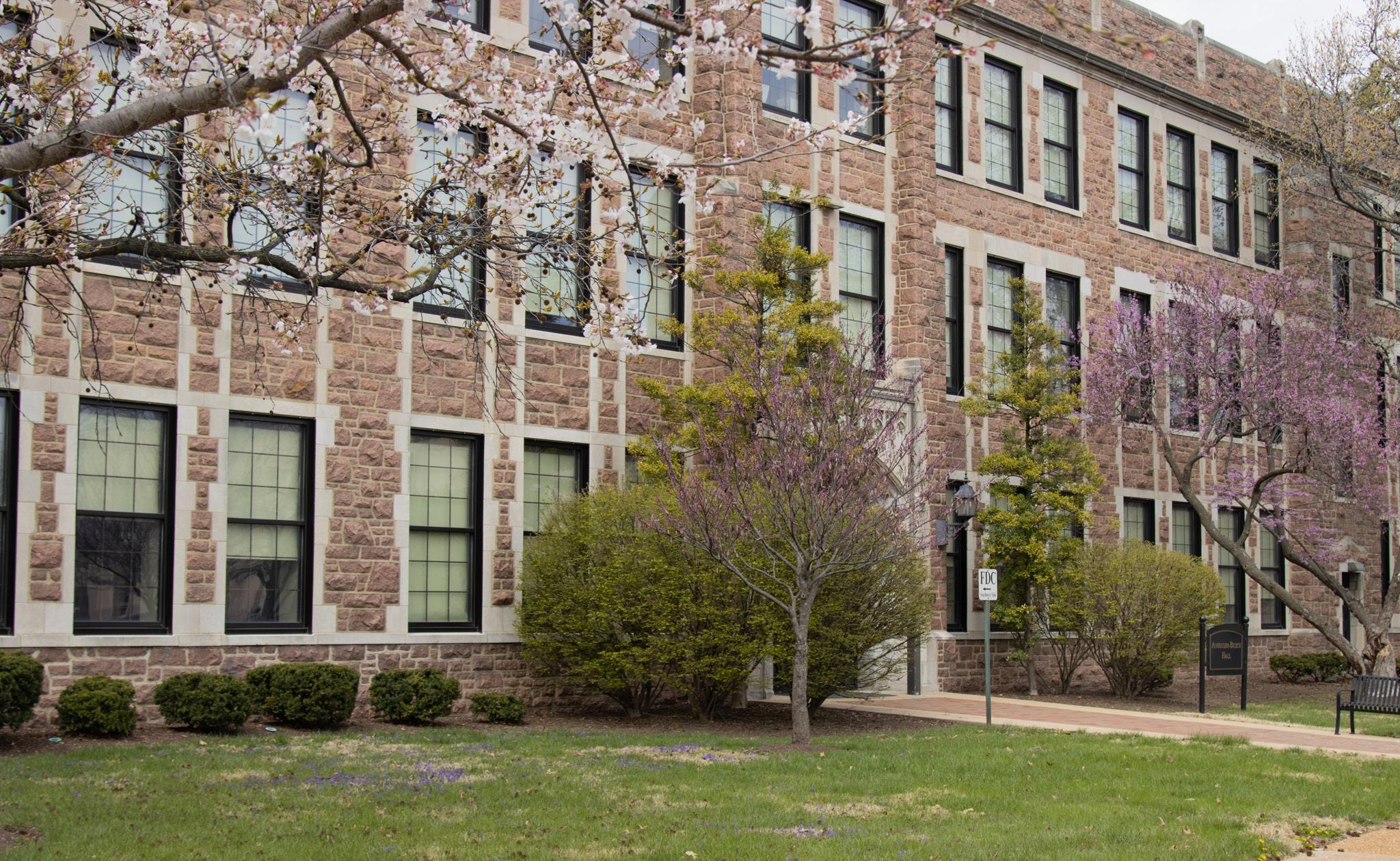
It was then WUFuego’s turn to bring the heat. The Latin dance team, known for both performance and social dance, partnered up and captured the audience with seamless alignment, twisting and entwining without missing a beat.
because, you know, I just got here.”
Living up to the name of the song, WuFuego brought in fiery competition, dancing to “Estamos En Competencia,” by La Maxima 79.

Patton transferred this year from University of Missouri, where he played on the Tigers football team as a first-year student. Hoping to get more playing time, Patton moved to the much-smaller Fontbonne, which is also closer to his family in St. Louis. He’s a little frustrated that the announcement came so late into the year. If he had known a few months earlier, he may have tried to transfer out and join another team.


ALICE GOTTESMAN | MANAGING SCENE EDITOR | SCENE@STUDLIFE.COM STUDENT LIFE 3 THURSDAY, APR 11, 2024 VOLUME 145, NO. 23 Copyright © 2024 Washington University Student Media, Inc. (WUSMI). Student Life is a financially and editorially independent, student-run newspaper serving the Washington University community. Our newspaper is a publication of WUSMI and does not necessarily represent the views of the Washington University administration. Avi Holzman Nina Giraldo Editors-in-Chief editor@studlife.com Aliana Mediratta Managing News Editor news@studlife.com Alice Gottesman Managing Scene Editor scene@studlife.com Sylvie Richards Managing Forum Editor forum@studlife.com Riley Herron Managing Sports Editor sports@studlife.com Cathay Poulsen Managing Chief of Copy Sydney Tran Head of Design designers@studlife.com Jaime Hebel Head of Illustration Bri Nitsberg Managing Photo Editor photo@studlife.com Camden Maggard Head of Social Media Tim Mellman Managing Newsletter Editor emailedition@studlife.com Sanchali Pothuru Managing Multimedia Editor Lauren Smith Special Issues Editor Zach Trabitz Lily Taylor Investigative News Editors Will Rosenblum Zara Shariff Senior Scene Editors Jasmine Stone Jordan Spector Amelia Raden Senior Forum Editors Elias Kokinos Ian Heft Senior Sports Editors Zoe Oppenheimer Alan Zhou Senior Photo Editors Mia Burkholder Chief of Copy Tanvi Gorre Nina Laser Aliza Lubitz Elizabeth Stump Joel Swirnoff News Editors Olivia Lee Sophia Hellman Junior Scene Editors Dion Hines David Ciorba Junior Forum Editors Sam Powers Isabella Diaz-Mira Junior Photo Editors Kate Westfall Design Editor Grayce Cooper Junior Socials Editor Quinn Moore Newsletter Editor Matt Eisner Lewis Rand Elaheh Khazi Junior Sports Editors Anaelda Ramos Illustration Editor Mireya Coffman Alan Knight Multimedia Editors Alex Savin Designer Ava Giere Samantha Elegant Copy Editors Tony Tong Senior Web Editor Madison Yue Hadia Khatri DEI Editors Adrienne Levin Coleman General Manager a.coleman@studlife.com Sarah Huff Advertising Sales Manager huffs@studlife.com Dreading the Lasts: Fontbonne community reckons with closure Culture and community:
NEWS EDITOR
VIA POOLOS ALIANA MEDIRATTA STAFF WRITER MANAGING
EDITOR
SOPHIA HELLMAN JUNIOR SCENE
BRI NITSBERG | STUDENT LIFE
With the upcoming closure of Fontbonne, students and faculty reflected on their disappointments, questions, and paths forward.
SAM POWERS | STUDENT LIFE
Read the rest online: Read the rest online:
WUSauce hosted their annual Dance Off at the DUC, with a medley of all types of cultural and modern styles of dance from a variety of student groups.
FORUM
See the flags. Say the stories. Stop the silence around sexual violence.

Editor’s note: This article contains discussion of sexual violence and contains sensitive language regarding unwanted sexual contact. Resources and helplines can be found at the bottom of the piece.
To everyone who walked past the purple flags surrounding Mudd Field, pay attention. To everyone who thinks sexual violence awareness doesn’t apply to them, because they would never do something like that, pay attention. To everyone who thinks they don’t know anyone who’s been affected by sexual violence, so therefore it doesn’t matter, pay attention.
Everyone needs to stop staying silent and start recognizing the uncomfortable reality of sexual assault on this campus. On the morning of April 1, students went to class and were met with 2,505 purple flags bordering Mudd Field. Each flag was placed by the Sexual Assault and Rape Anonymous Hotline (S.A.R.A.H.), one for each undergraduate or graduate student who has reported experiencing nonconsensual sexual contact since coming to campus. This effort is done every April 1 to commemorate the start of Sexual Assault Awareness Month. Every day that week, hundreds of students,
survivors, and perpetrators going about their days walked past these flags. What must go through the minds of sexual assault perpetrators when they see these flags? Do they think about the damage they caused; do they feel pity and regret over their actions? How do survivors feel walking past the flags, being both reminded of their trauma and comforted by the community it created?
These 2,505 flags represent the stories of 2,505 students who have survived experiences no one should have to face. These flags represent all stories, not just the ones society tells us to believe are important. Sexual assault doesn’t occur in only one way. All 2,505 students

experienced some variation of “penetration or sexual touching involving physical force, inability to consent or stop what was happening, or attempted penetration by force,” although sexual assault is never limited to one definition.
Each of these stories matter; it doesn’t make a difference if they match the typical sexual assault scenarios that are presented in educational programs from WashU. When these platforms center the conversation of sexual assault around only one story, which many times is defined as rape, it invalidates the thousands of stories and resulting trauma that are just as valid but may have looked different. Every story is a real story, and every story matters.
With 230 days in a full academic year, that would mean that almost 11 Washington University students are sexually assaulted every day. This magnitude of students should not have to suffer at the hands of sexual assault perpetrators. And too many people are silent about what is happening, preventing any possible change.
It would be easy to place blame on the University and say that they aren’t doing enough to prevent or punish sexual violence. While I agree that Washington University’s administration is not as proactive as it should be, we cannot take the focus and responsibility off of the perpetrators.
Whether you acknowledge it or not, your own peers — the people you eat with and study with — may be the ones sexually assaulting
others. Society too often blames survivors, causing so much unnecessary guilt over something that no one should ever experience. Start placing the blame where it belongs. Perpetrators should not be coddled; they should not be understood or heard out. Whether they realize the full extent of what they are doing in the moment or not, they are not accidentally making mistakes. Mistakes are forgetting to submit a homework assignment, not causing irreversible damage and inconceivable pain to another person. Perpetrators need to be held accountable. When students watch others get caught for these actions and face little to no punishment — whether it be official or social — it is only encouraging more to act in these ways.
If this administration and the Title IX process make it incredibly difficult to take official action against these people, we, as students, need to do what is necessary to ensure these individuals are held accountable for their actions.
Look at the people you surround yourself with and make the adjustments that are necessary. Call out the harmful or problematic words and actions that need to be spoken about aloud. Surround yourself with people who support survivors, not those who turn someone into a survivor. Even if doing so is uncomfortable, your momentary discomfort could be what prevents one more person from adding a flag to the field next year.
This is not something you just move on from. If so many survivors can’t move
on from their experiences, why does it feel like the world has moved on from the issue?
It’s not something that you think about when the flags surround Mudd Field and then forget about now that they are gone. Recognize each flag; notice each one and think of the person and story that is associated with it.
Think of the pain they went through; think of the fear they have felt every day since.
Think of the number of people who walk on this campus and see their assailants every day, because these dangers are coming from within.
Be uncomfortable. Be angry. This is not just an abstract concept we commemorate with a month of the year dedicated to awareness; they are real stories and real people you interact with every single day.
The Sexual Assault and Rape Anonymous Helpline (S.A.R.A.H) provides confidential and anonymous support regarding sexual assault, sexual harassment, intimate partner and sexual violence, relationships, and mental and sexual health. It can be reached at 314935-8080 24/7 during the fall and spring academic semesters.
There are counselors at the Relationship and Sexual Violence Prevention (RSVP) Center, located in Seigle Hall, Suite 435, available confidentially to any University student. The office can be reached at 314-935-3445 or by email at rsvpcenter@wustl.edu.
The National Sexual Assault Hotline can be reached at 1-800-656-4673 or via online chat here 24/7.

SYLVIE RICHARDS | MANAGING FORUM EDITOR | FORUM@STUDLIFE.COM 4 STUDENT LIFE THURSDAY, APR 11, 2024
BRI NITSBERG MANAGING PHOTO EDITOR
BRI NITSBERG | STUDENT LIFE Purple flags line Mudd Field to represent survivors for Sexual Assault Awareness Month.

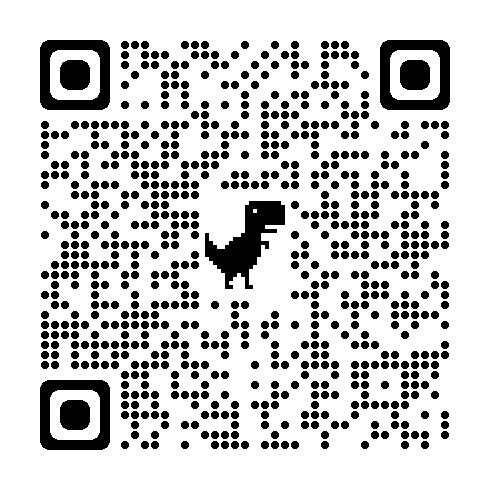
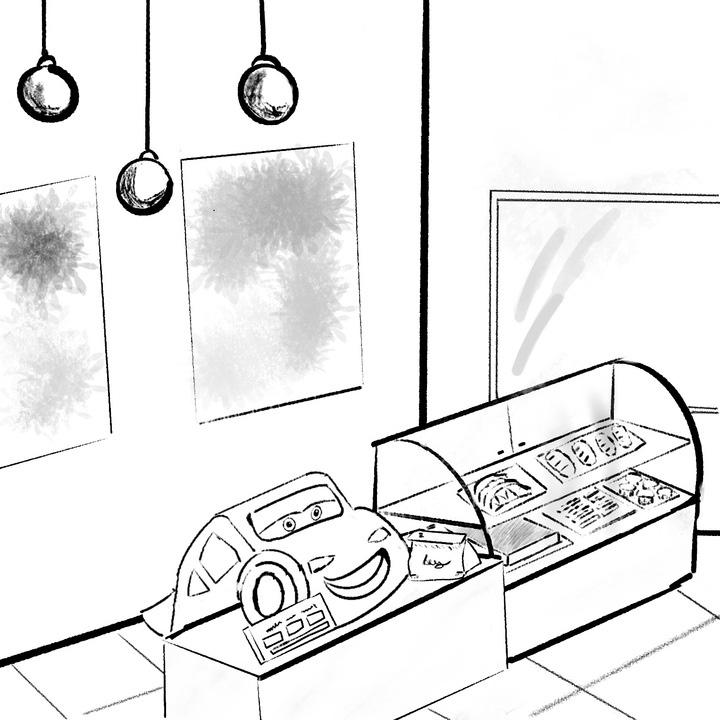













SPONSORED BY: PUZZLE PUZZLE Mania SYLVIE RICHARDS | MANAGING FORUM EDITOR | FORUM@STUDLIFE.COM STUDENT LIFE 5 THURSDAY, APR 11, 2024 drink. dine. play WEEKLY BAR, RESTAURANT AND FUN GUIDE Dine-in, carry-out & delivery! VIEW OUR MENUS & ORDER ONLINE Open Daily, from 7a to 2p! Now Open at NIGHT - Sat & Sun, 5p to 10p STUDLIFE.COM Wherever you are, stay connected: Subscribe to our free e-newsletter... head to studlife.com now and sign up! FACEBOOK.COM/STUDLIFE @ STUDENTLIFENEWSPAPER @ STUDLIFE Word Play Crossword by Alex Nickel 1 A 2 M 3 B 4 E 5 R 6 F A U C I 7 A C R I D 8 C H E G G 9 T E N S E ACROSS 1 Heard from Aquaman 6 Anthony who led US COVID-19 response 7 Unpleasantly bitter 8 Artificial intelligence? 9 Past, present, or future DOWN 1 It can be fun 2 Papier-_____ (sculpting material) 3 President Martin Van 4 Juuls or Elf Bars 5 "Blue _____ Mountains, Shenandoah River" Last week’s solution Waxing Poetic Crossword by Alex Nickel 1 2 3 4 5 6 7 8 ACROSS 1 Keats wrote one to a nightingale, Shelley wrote one to the west wind 4 Poet Li Bai's native country 6 'Poe'-etic NFL player? 7 "You ___ __ sunshine" 8 Oliver who asked "Tell me, what is it you plan to do with your one wild and precious life?" DOWN 1 "Having a Coke with You" poet Frank 2 School observer? 3 Satan, to Eve in “Paradise Lost” 4 Do some last-minute studying 5 Word before luck or takers Caption this! Enter this week’s contest Scan the QR code to enter your submission by 11:59 p.m. on Monday. 04/10 WINNERS First place Here at McQueen Cafe, our motto for customer service is simple. As our great founder once said, “Speed, I am speed.” Jasmine Li, Current WashU Student Second place I should not have majored in anthropology. Will Houseman, Current WashU Student Third place As Herbie the Lovebug picked up the grubhub order from Cafe’ Bergson, he happily reflected, ‘I hope my kids get the opportunity to go to a school like washu.’ Darren Jacobs, WashU Parent CAPTION CONTEST ILLUSTRATION BY ANAELDA RAMOS ILLUSTRATION BY DAVID WANG
On the “BD egging incident” and the prejudice we would like to ignore
“Sometimes we have to stick our noses in some sh*t. In order to make a statement, develop an understanding, and make a story worth caring about, we have to stick our noses in some sh*t.”
These are the first lines of my girlfriend’s essay entitled “How to Write Like You Have a Soul.” It was for her Memoir Writing class, and she sent it to me a couple weeks ago to edit. At the time, the introduction struck a chord with me. Not because I am thoroughly experienced with sticking my nose into sh*t, as she insists you must do. I simply loved the candidness, the wry vulgarity. But during the past couple weeks, I have gotten closer to truly understanding her words with my investigation of the “BD egging incident” and Washington University’s relationship with its Black students and Sodexo dining workers.
I was going to write an article about WashU’s relationship with its dining service workers. It had been a few days since I first heard of the egging and was enraged. Though many people at the moment saw the event as another example of harmless frat-boy rowdiness, to me, the event was yet another manifestation of the power imbalance between dining workers and WashU students. No matter what the students involved with the “egging incident” did — whether it be defacing walls or slightly rearranging tables — the expectation would have always been for the workers of the Bear’s Den to clean it up without protest. In that
situation and several others, BD workers — who act as most of WashU students’ only contact to the greater St. Louis community — become a faceless, homogenous being only there to do Sodexo’s and students’ bidding.
When I heard that there was a possibility that slurs were said, my face became hot. In my eyes, the “egging incident” transcended the allegory for classism that it once was and breached racist territory. I went to Sodexo dining facilities across campus (i.e. the DUC, BD, and the Village) to ask questions and hopefully interview workers about the “egging incident.” Most of them did not want to speak with me, even with the preface that they would remain anonymous and that any identifying information (e.g. preferred pronouns, gender identity, number of children, etc.) would remain withheld. The few that spoke with me — with only one comfortable with being audio recorded — said that they did not feel safe on or near campus nor did they feel as if they have voices as Sodexo workers. When I asked one worker, Worker A, if they felt heard by management, they gave me a simple answer: “Hell no.”
When my conversation ended with that worker, they seemed hopeful, or — at the least — indifferent. The interview with Worker B was not as expectant. When speaking with them about the egging and possible slur-spewing in BD, their eyes began to well up. They breathed for a moment. “It’s [terrible], what they doing,” they exclaimed, voice shaking and fist pounding
into their palm. “That’s horrible, that it’s swept under the rug. We don’t even know how safe we are. But, I guarantee you, had we [the workers in BD at the time of the egging] retaliated, it would’ve been talked about then. That we were Black motherf***ers.”
Their voice became breathy on that last sentence, as if someone unseen was choking them. And, by the conversations that I had with those workers, they indeed felt choked by both WashU, as an institution, and Sodexo.
According to the workers that I spoke with, they are completely ignored by their management and sometimes by WashU students, faculty, and staff. One worker explained that individuals ask them for larger portions and become angry when they are informed of portioncontrol rules. Oftentimes, students will ignore that workers have specific duties and are taking on the work of nearly three people because of Sodexo being severely understaffed. This oversight made one worker feel more like a servant than a member of the WashU community.
The dining workers are parents. They have children that they cannot go home to at the time that they would like because, over the winter break, Sodexo assigned workers hours that fit its needs rather than the needs of its employees. They have children that they know would have a difficult time if they attended WashU because they understand how they would be received by the institution. One worker even asked what I and other Black students are experiencing at WashU.
“At this point, what else
many influencers, such as the Kardashians, celebrating curves (as long as you still had a flat stomach).
Editor’s Note: This article contains discussion of eating disorders and contains sensitive language regarding negative body image. Resources and helplines can be found at the bottom of the piece.
The past two years have been characterized by an overwhelming return of the early 2000s — it’s impossible to go outside or online without seeing low-rise jeans, flared pants, and baby tees. Fashion trends appear and disappear in cycles, and since 2020, the most fashion-forward have brought 90s, 2000s, and even 2010s trends back into the forefront. Exactly ten years since the iconic year 2014, Tumblr aesthetic is making its way back into the mainstream. However, with the recycling of these quintessential fashion trends, I can’t help but also notice another, more sinister trend returning under the guise of fashion: body negativity.
Since the beginning of time, women’s bodies have been objectified and idealized, forced to fit a certain standard of beauty. These standards are often cyclical, following similar patterns to those of popular clothing. In this way, female bodies have gone through trends, as the definition of a “perfect” woman has changed nearly every century throughout history and every decade since the 1900s.
The 90s were characterized by “heroin chic,” referring to the sickly, skinny look of supermodels who often abused the drug.
In the early 2000s, women were expected to be skinny to look good in low-rise jeans and crop tops that showed off their midriffs. Finally, in the late 2010s, we saw
In the 2020s, although we claim to be celebrating body positivity in most social media circles, the dangerous standards set from the 90s to early 2010s have been making a comeback. Recent body trends popularized via social media, especially TikTok, are continuations of harmful trends from past decades.
An example of a “new” body trend is the term “legging legs,” referring to thin legs that are “perfect” for wearing leggings. This is almost a carbon copy of the 2010s’ idealized thigh gap, in which someone has a space between their thighs while standing with their legs together. When I first encountered a video about legging legs, I laughed it off, thinking it was a joke that would soon be lost to the everchanging TikTok algorithm. However, soon my feed was filled with videos like the first, proving that this trend was here to stay. And it didn’t stop there. Many accounts offer harmful fitness and dieting tips disguised as health advice. Some post frequent “What I Eat In A Day” videos, which include extremes such as a TikToker who impersonated Sydney Sweeney’s dietician to promote “healthier” food options. Other accounts even show blatant fatphobia and promote food restriction and intense exercise. One such user, (@kingkrabbypatty) posted a TikTok saying, “I said, ‘I don’t think I wanna run today,’” and then telling herself, “‘Well, I think [I] look like a pig! Oink, oink, bitch.”’ This user has over 200,000 followers, and her comment section is filled with affirming comments, such as “I needed to hear this.”

has even happened to some of the Black students or students of color and they — and we don’t even know it, to support them? We in the face of these people every day, as well. So, that could be like, ‘Damn, something happening to the Black students on campus’… and every time we talk about sh*t, it’s like, that sh*t being so long ago. No, that sh*t’s happening today, right now, in our face.”
The Association of Black Students (ABS) executive team seemed to have this in mind when they posted their statement about the “egging incident,” and — even though that worker and the ABS executive board did not speak about the “incident” together, to my knowledge — it seemed as
As I fell deeper into the rabbit hole, I began to discover accounts with “wl” in the bio, signifying they were weightloss accounts. These accounts list their goal weights, and their videos include advice on how to eat less, rewards for reaching certain weights, “motivational” quotes, and photos of celebrities or influencers who have their “goal body”. They also frequently feature “body checking,” which involves showing off sought-after aspects of one’s physical appearance, such as a small waist or flat stomach.
All of these “ED” (eating disorder) TikTok accounts are near-exact copies of “proana” (pro-anorexia) Tumblr accounts on the once-popular social media site in the early 2010s. These accounts featured unhealthy weightloss tips and included harmful rhetoric that glorified eating disorders. Finally, they posted “thinspo,” short for “thin inspiration” — content which is remarkably similar to TikTok’s body checking. The only real difference between Tumblr-era eating disorder content and the recent advent of ED TikTok is the fact that TikTok has over 1 billion users, making it one of the most popular social media sites ever. This means that the harmful accounts are more accessible than ever to children and young adults, who both make up the majority of users and are the most susceptible to developing eating disorders from watching these videos. Furthermore, due to how the TikTok algorithm works, interacting with accounts like these will cause more and more similar videos to appear on the For You Page, the main feed for users scrolling through the app. What could start with a seemingly harmless video
about dieting or fitness inspiration could lead to someone experiencing body dysmorphia, or even developing an eating disorder. Over 28 million Americans have experienced an eating disorder at some point in their lifetime, and college students have an increased risk of developing one due to high-stress environments and harmful rhetorics around eating. At Washington University, for example, I have heard fellow students bragging about skipping meals or talking about how to avoid the “Freshman 15.” In some cases, students are so anxious due to school and social factors that they physically cannot eat, or see food restriction as a method of gaining back some control over their lives.
Whatever the origin, disordered eating or eating disorders are extremely harmful and need to be taken more seriously. Eating disorders have the highest mortality rate of any mental illness because the act of restricting food causes the body to physically shut down — effectively eating itself from the inside. Such a disease should not be romanticized or belittled, and the way it is promoted on social media does exactly this.
The root of this problem always comes down to the unattainable ideal of what a body should look like — no matter if that means heroin chic, thigh gap, “slim-thick,” legging legs, flat tummy… the list goes on and on.
As long as our bodies continue to be subject to trending beauty standards, eating disorders will continue to be a deadly issue. The solution should be simple, right? Stop treating our bodies as a fad, as something that can be changed as easily as
if their statements were in direct
event
crime
time
WashU’s
to change.” With this statement and the conversations that I had with the dining workers, the topic of my article shifted to encompass the experience of dining service workers and Black students on campus.
It is clear to me and so many Black students and other non-Black students of color that WashU indeed has a culture of racism that has been propagated via years of elitism and the indifference of
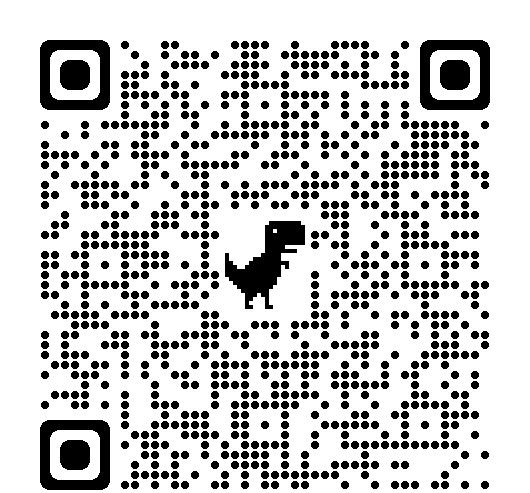

the shift to low-rise jeans.
Obviously, this is easier said than done. But it starts with the way we interact with those harmful social media accounts. TikTokers are only as influential as the number of views they get, and reporting harmful behaviors can reduce the traffic on the video. The “Not Interested” option exists for a reason! While younger generations may be among the most at risk for developing a severe eating disorder, we also happen to be the most prominent users of social media platforms. For the sake of the next generation of young children who may be watching those videos and developing unhealthy views of their bodies, I hope that we can revive the body positivity movement — more authentically and permanently this time. The Sexual Assault and Rape Anonymous Helpline (S.A.R.A.H) provides confidential, anonymous support regarding sexual assault, harassment, and violence, relationships, and mental health. It can be reached at 314-935-8080 24/7
SYLVIE RICHARDS | MANAGING FORUM EDITOR | FORUM@STUDLIFE.COM 6 STUDENT LIFE THURSDAY, APR 11, 2024
the
conversation with each other. In the statement posted to their Instagram page on April 2,
executive team labels the
as a hate
and contends that “it is
for
culture of anti-Blackness
no one’s surprise, Sidechat bustled with students who were enraged by the ABS exec team’s characterization of the “egging incident.” I swore off Sidechat in the first month of school after realizing that
DION HINES JUNIOR FORUM EDITOR
Chancellor Martin and leaders before him. But, to
it is a cesspool of ignorance and degeneracy. I try my best not to recognize it in general, but the racism and blatant anti-Blackness that has taken place on that platform is inexcusable.
BY DION
ILLUSTRATION
HINES
during the fall and spring academic semesters. Uncle Joe’s Peer Counseling and Resource Center has a 24-hour hotline at 314-9355099. If you wish to speak with someone in person, their office is in the basement of Gregg Hall, 10 p.m.-1 a.m. nightly. Habif Health and Wellness Center has counselors and physicians available by appointment through the Student Health Portal. Students are often referred to a campus dietitian and psychiatrist for additional support. The National Eating Disorders Association provides additional information and resources on eating disorders. The National Eating Disorder Association (NEDA) provides support for individuals and families affected by eating disorders through their toll-free, confidential hotline. It can be reached at 1-800-9312237, Monday through Thursday from 8 a.m. to 8 p.m. Central Standard Time and on Fridays from 8 a.m. to 4 p.m. For 24/7 assistance, text ‘NEDA’ to 741741. ELLE MILES CONTRIBUTING WRITER
ILLUSTRATION BY JAIME HEBEL Read the rest online:
Recycle the fashion trends, not the negativity
SPORTS
Bringing football back to St. Louis: Battlehawks enter season three with promise and fanfare
JACOB RITHOLZ STAFF WRITER
Nearly a decade ago after the 2015 National Football League (NFL) season, St. Louis’ football team, the Rams, abandoned the city for Los Angeles.. It probably did not help that only a few short years later, the Rams would win their second Super Bowl in franchise history. Instead of taking place under the arch, the victory parade happened near the Pacific coastline, with many St. Louisans left feeling angered and empty. However, the city has begun to embrace a new team. The St. Louis Battlehawks reside in an eight-team league called the United Football League (UFL), newly created and currently undergoing its inaugural season after merging two other football leagues, the XFL and the United States Football League (USFL). The Battlehawks were previously part of the XFL, but due to the pandemic, were only able to play five games in the inaugural 2020 season, finishing with a 3-2 record, before all play was suspended until this past year. The city of St. Louis has certainly shown support
to their new team. The Battlehawks have thus far led all UFL teams in attendance, social media followers, and television viewership. The team was forced to open up more seats to fans in The Dome, where the Battlehawks play their home games, after two consecutive sellouts back in 2020. The team averages over 35,000 fans in attendance per game with all seven home games the Battlehawks hosted last year ranking in the Top 8 of UFL attendance. The team was so popular that their average attendance more than doubled the secondplace DC Defenders. At their last game, on April 6, the team set a new record with 40,000 fans in attendance. St. Louis wanted a football team — now it has one.
“I’m really excited for us to have a football team again to support,” Missouri native and former Rams fan sophomore Oliver Tramel said. “We haven’t had football since the Rams left, but I’m definitely gonna tune in — it’s a pretty clutch situation.”
In the 2023 season, the Battlehawks ended with a strong 7-3 record, but missed the playoffs altogether due to a tiebreaker with the Seattle Sea Dragons. Now, they look for a bounceback
season, hoping to put it all together and reach the postseason. Led by quarterback A.J. McCarron — who led The University of Alabama to back-to-back college football national championship games in 2012 and 2013 and was drafted in the fifth round of the 2014 NFL Draft to the Cincinnati Bengals — the Battlehawks are poised for another strong season. McCarron threw for 24 touchdowns and just six interceptions in only nine games played last year, with a 68.8% completion percentage to go along with 2,150 passing yards. McCarron’s touchdown total was enough to lead the league, and his continued success will be crucial to the Battlehawks’ playoff hopes.
The road to the championship won’t be easy, however. The Battlehawks will have to cope with the loss of lead running back Brian Hill. Hill, a former NFL player, led the team last year in rushing yards, attempts, and yards per attempt, but is not back on the team for the 2024 season. Now, the Battlehawks look to Wayne Gallman, another former NFL player. He had a quiet debut in the season opener with 40 yards rushing and no touchdowns, but his success will be necessary

if the Battlehawks want to have a chance at the title. To make the playoffs, the Battlehawks will need to finish in the Top 2 out of the four teams in the XFL division. Last year, despite being 7-3, they missed out on the big dance because of their strong division, while the 4-6 Arlington Renegades, who were in the other division, made the playoffs and went on to win the championship. The divisions were reworked this year due to the merger and are incredibly important if St. Louis wants to win the title. The Battlehawks got the 2024 season off on a good foot, squeaking out a 27-24 win against the Renegades,
now a divisional opponent, and bouncing back from a tough 18-16 loss against the Michigan Panthers to bring their record to 1-1.
As the season progresses, only time will tell if the Battlehawks can make it far into the postseason. But no matter how the team finishes, they now hold an additional responsibility:
The Battlehawks are now St. Louis’ team and have brought something that the city has been missing for the past few years. Now, they look to create a new legacy of football and be a trailblazer for the UFL in captivating St. Louis.
Strong finish at WashU Invite wraps up first half of women’s golf season
Washington University women’s golf’s junior Sydney Kuo won the WashU Spring Invite by two strokes with a score of 145 (one stroke over par) across two rounds on April 6 and 7.
“I felt a sense of relief, but also a lot of excitement and a lot of pride, because it just showcases how much hard work we’re putting in, and it’s a tangible outcome that you can physically see. Whether it’s through a trophy or when you see the leaderboard on the screen, to have that validation, I really live for it because, I mean, I love winning,” Kuo said after her first tournament victory of the season.
Led by Kuo, the No. 11
Washington University women’s golf team finished second, recording a score of 610 (34 strokes over par) on the par 72 course.
Read
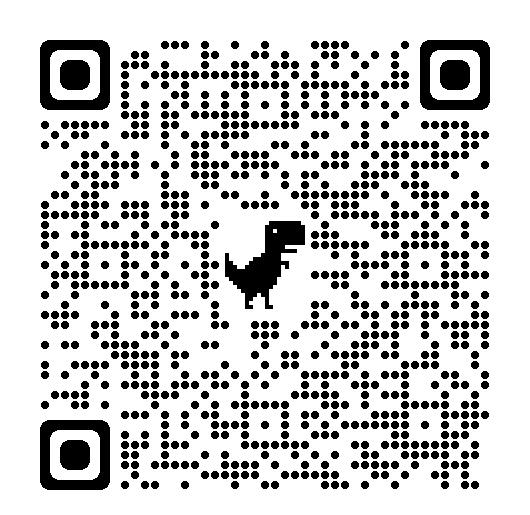
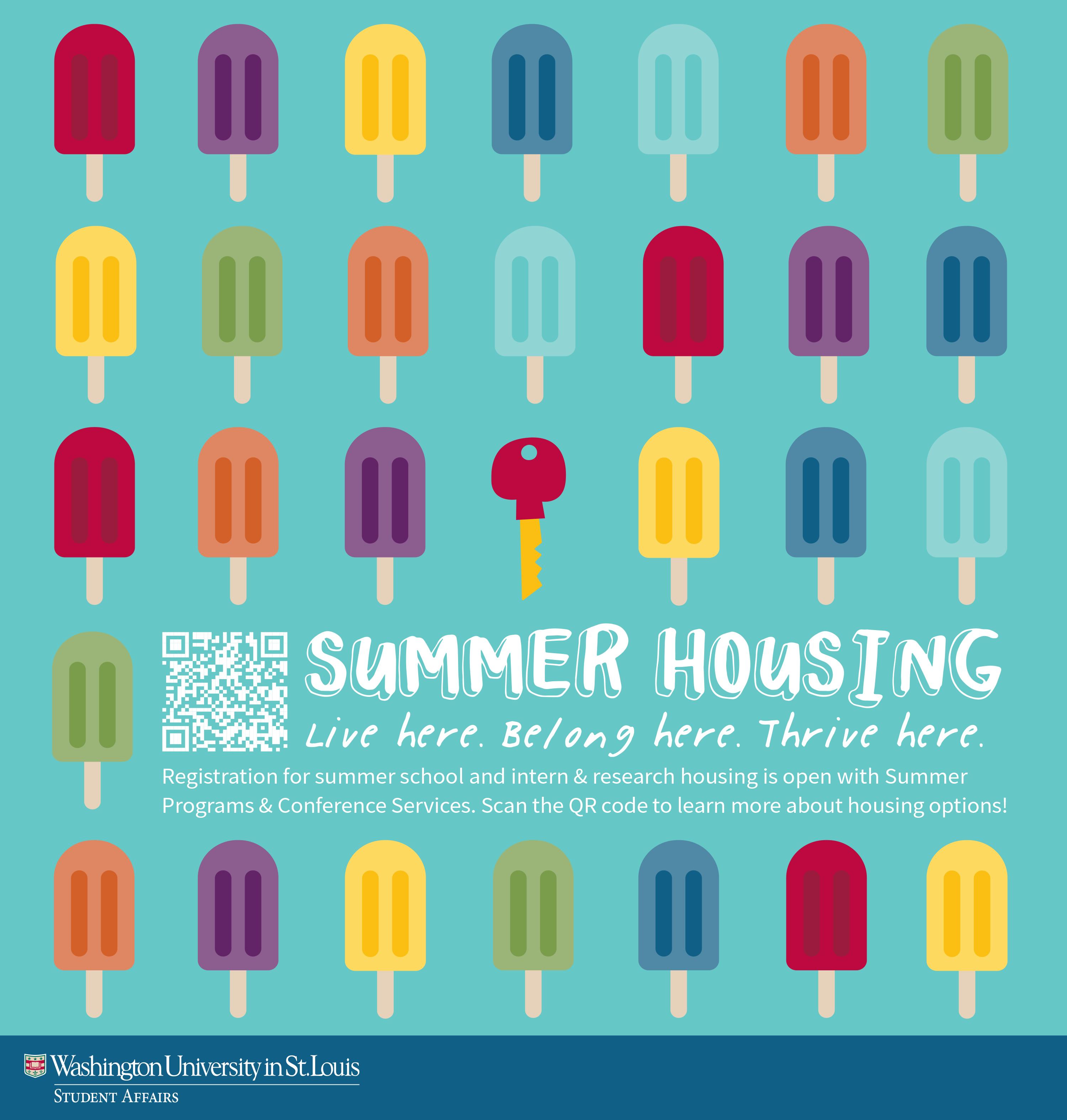
RILEY HERRON | MANAGING SPORTS EDITOR | SPORTS@STUDLIFE.COM STUDENT LIFE 7 THURSDAY, APR 11, 2024
LEWIS RAND JUNIOR SPORTS EDITOR
ILLUSTRATION BY MANUEL LOPEZ
the rest online:
Softball rides “punch first” mentality to road sweep over NYU
The Washington University Bears softball team had a clear mission in their second weekend of conference play. After splitting a series against Brandeis University the previous weekend, the Bears were looking to make a statement in their next four games, traveling to face the New York University (NYU) Violets in a four-game set.
“We felt like we could have played better [last weekend],” junior Natalia Pilpil said. “We all felt like we were the better team, but we need[ed] to prove it.”
This weekend, however, the Bears left no doubt as to who the better team was. WashU swept the four-game series, securing two victories by mercy rule and outscoring NYU 33-3 across the weekend on April 5-7. With the sweep this weekend, the Bears improved to 6-2 in University Athletic Association (UAA) play and 17-7 overall. However, the team will have their work cut out for them next week when they host No. 6 Case Western Reserve University, who is in first place in the UAA with an 8-0 conference record. Pilpil helped the Bears set the tone in the series opener, hitting two home runs and driving in six runs. It was the first game of a big weekend for Pilpil, who went 8-15 with seven RBIs across the weekend series. The performance earned her UAA Softball Hitter of the Week.
WashU won the Friday game 12-0 via mercy rule, securing the win in only five innings. Pilpil, used most often at third base this season, played catcher in Friday’s game, calling the pitches for junior Jordan Rossi. With Pilpil behind the plate, Rossi shut down the Violets, pitching five scoreless innings with only three hits allowed.
“She was lights out. She was hitting all her spots,” Pilpil said. “Our pitchers, they’re awesome. They’re a complete staff.” Behind Rossi, the Bears offense broke out to record the team’s highest-scoring game of the season. WashU started early with four runs in the first inning and never looked back, scoring multiple runs in each frame of Friday’s contest. After the games, Pilpil discussed the importance of getting on the board quickly to set the tone.
“We always want to punch first,” she said. “And if we give up some runs, get them right back.”
Rossi’s pitching performance lowered her season Earned Run Average (ERA) to 1.32, a mark that leads the UAA. Including Rossi, the Bears’ pitching staff has the three best pitchers by ERA in the conference, with firstyear Maria Brooks (1.42) and junior Jamie Burgasser (1.62) also turning in strong seasons so far.
Despite the concentration of Bears pitchers at the top of the ERA leaderboards, Brooks denied any friendly competition within the staff.
“We work together to help each other keep our ERAs
low,” she said. “At the end of the day, the stats are just numbers. They can tell you a lot, but also sometimes, you can get a little too caught up in them.”
In the first game of the Saturday doubleheader, the Bears sent Brooks into the pitching circle to face the Violets. Brooks followed Rossi’s outing with a complete-game performance of her own, allowing only one run on five hits to lead a 6-1 WashU victory.
On the mound, Brooks was able to rebound after allowing two hits, one of them an RBI double, in the first inning. Over the next six innings, she allowed no runs and only three hits. She commented post-game about staying in control.
“Sometimes I just need to dial back in,” she said. “Just knowing that ‘Hey, I still got a whole game ahead of me, it’s not that deep.’” The Bears’ offense backed Brooks with six runs after trailing early. Junior second baseman Brooke Capparelli had a strong day at the plate, going 3-3 with two RBI. First-year Kennedy Grippo also added two hits and an RBI in Saturday’s first game.
In Saturday’s second game, the Bears rode another strong pitching performance to victory, this time from Burgasser. Behind her complete-game outing, the Bears won 4-1. Junior right fielder Erin Reardon had two RBI in the game, while graduate student catcher Payton Irwin went 3-3 and scored twice. Despite their big offensive performances in the other games of the series, the
Bears were content to play small ball in Saturday’s second game. WashU got out to a 3-1 lead on a wild pitch and a pair of sacrifice plays before sophomore Sydney Schneider’s RBI single in the sixth inning extended their lead to 4-1.
Burgasser held the Violets to one run on just three hits in the game, striking out seven. Burgasser, who was named UAA Softball Pitcher of the Week, leads the Bears with 38 season strikeouts.
On Sunday, the Bears finished strong with an 11-1 win, also by mercy rule. WashU jumped out to another quick lead with three runs in the first inning, followed by four runs in each of the next two frames. Juniors Olivia Craycraft and Taylor Geluck each recorded three RBI, with Geluck driving in two on a home run in the second inning.
In the pitching circle, firstyear Hattie Bond held the Violets to just one run in the series finale. Bond allowed six hits and no walks across the shortened fiveinning game, maintaining WashU’s season-long trend of shutdown pitching.
After the big wins, WashU sits in second place in the UAA and will look to ride its momentum into another key series when it hosts conference leader Case Western Reserve University next weekend. “We’re trying to keep that same confidence and momentum,” Pilpil said. “A lot of softball is a mental game, so trying to keep that same confidence is going to be huge.”
St. Louis Cardinals look to bounce back after rough 2023 season

2023 Recap:
The St. Louis Cardinals began last season with postseason aspirations, but sputtered early and never recovered en route to a last-place finish and a 71-91 record. A big part of the decline began with the retirements of key players
Albert Pujols and Yadier Molina after the 2022 season. Furthermore, 2022 National League (NL)
MVP Paul Goldschmidt and third-place finisher
Nolan Arenado took massive steps back, playing slightly above league average with the rest of the team, unable to pick up the slack.
On the mound, things weren’t much better. Their aging pitching staff managed an ERA of 4.79 (24th out of 30 teams) and averaged just three and two-thirds innings per start, compared to the league average of five. This decline
can be partially attributed to a new MLB rule banning the shift (teams would shift their defense in years past depending on if a hitter had a tendency to hit the ball to one side or the other), which hit St. Louis pretty hard as a team that relied on elite defense and groundball pitchers to induce outs. With these short starts, the bullpen racked up a ton of mileage and, towards the end of games, became notorious for blowing leads or putting the game out of reach. However, arms like Ryan Helsley, Giovanny Gallegos, and JoJo Romero showed signs of promise, putting forth several impressive stretches without allowing a run.
Read the rest online:
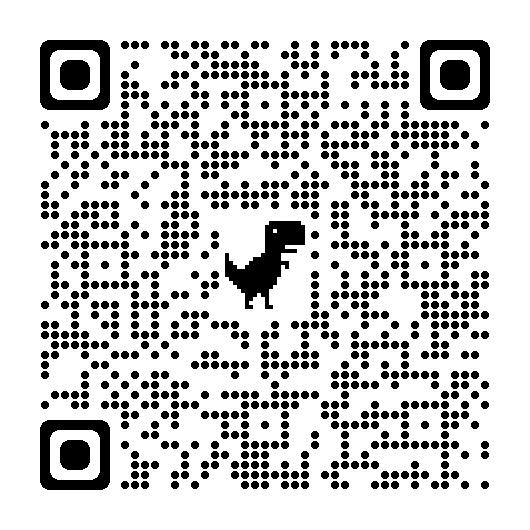
RILEY HERRON | MANAGING SPORTS EDITOR | SPORTS@STUDLIFE.COM 8 STUDENT LIFE THURSDAY, APR 11, 2024 SENIORS: Your feedback can help make WashU better Every two years, WashU surveys seniors to evaluate their undergraduate experience and to provide feedback that the administration needs to hear. Watch your email for your personal link to the Senior Survey. Respondents could win a $75 credit at the WashU Campus Store! SCAN HERE to learn more about the survey!
WILL SAN JOSE STAFF WRITER
RISHI CHINIGA STAFF WRITER
ILLUSTRATION BY ERICA SHI










































